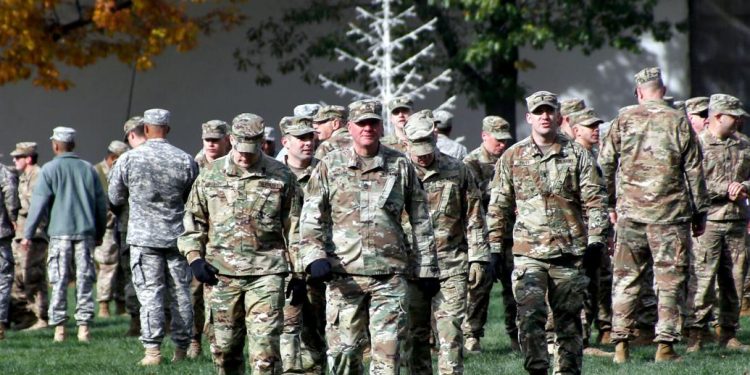By Anthony Hennen | The Center Square
(The Center Square) – Recent federal legislation has expanded health care benefits for veterans, but suicide and homelessness still remain issues of concern in Pennsylvania.
The Promise to Address Comprehensive Toxics Act, as The Center Square previously reported, expands and extends eligibility for health care through Veterans Affairs health centers. Known as PACT, the legislation addressed problems that veterans had with proving their health issues were linked to their service, such as exposure to toxic materials in burn pits.
“That was a big one,” said Joe Benacci, director of the Erie County Department of Veterans Affairs. “Being an Afghanistan veteran myself, the burn pits and toxic exposures, there was a lot of diseases and cancers that vets were getting and they were not able to service-connect them.”
Service-connection is when a veteran demonstrates their health issue comes from their military service and qualifies them for various benefits through the VA.
“Also on the VA-side, too: it’s also helping the VA expand their services to pick these claims up. They’re estimating this is going to cause about a million claims, it’s going to affect about 3.5 million veterans,” Benacci said.
“A lot of the past problems that you’ve heard a lot of the complaints about, they’re really trying to fix them,” Benacci said, referring to travel problems and the distances some veterans must travel for medical care.
Veteran suicide and homelessness remain issues in Pennsylvania, however. The PACT Act does not address those problems aside from requiring a study “to assess possible relationships between toxic exposures experienced during service in the Armed Forces and mental health conditions.”
The latest report from the U.S. Department of Veterans Affairs on suicide noted a 7% decrease in veteran suicides nationally in 2019; 6,261 veterans died by suicide. In Pennsylvania, 270 veterans died by suicide in 2019, with the most being between ages 55 and 74.
“There’s the concept that it’s all the young kids,” Benacci said. “But actually, it’s upper-age veterans, still heavily in the Vietnam era.”
Across all age groups, suicide rates for veterans are higher than for non-veterans.
The stress that comes after transitioning from a combat zone to family life, and going from being part of a big machine can be a problem, Benacci noted.
“That mental strain can really get to them,” he said. “And then the PTSD factors … and that goes all the way to the Vietnam veterans, that’s just across the board.”
Homelessness is also “a constant issue,” Benacci said. He noted Erie County plans to do a “stand down” in November where the department finds homeless veterans and offers them resources to assist with their mental health, as well as getting housing and a job.
The U.S. Department of Veterans Affairs also recently announced $431 million in grants to address veteran homelessness, with nonprofits in western Pennsylvania, the Harrisburg area, and Philadelphia area receiving funds.
“Along with suicide prevention, mental illness, and homelessness are in the three ongoing things we can hopefully make a difference on,” Benacci said.




